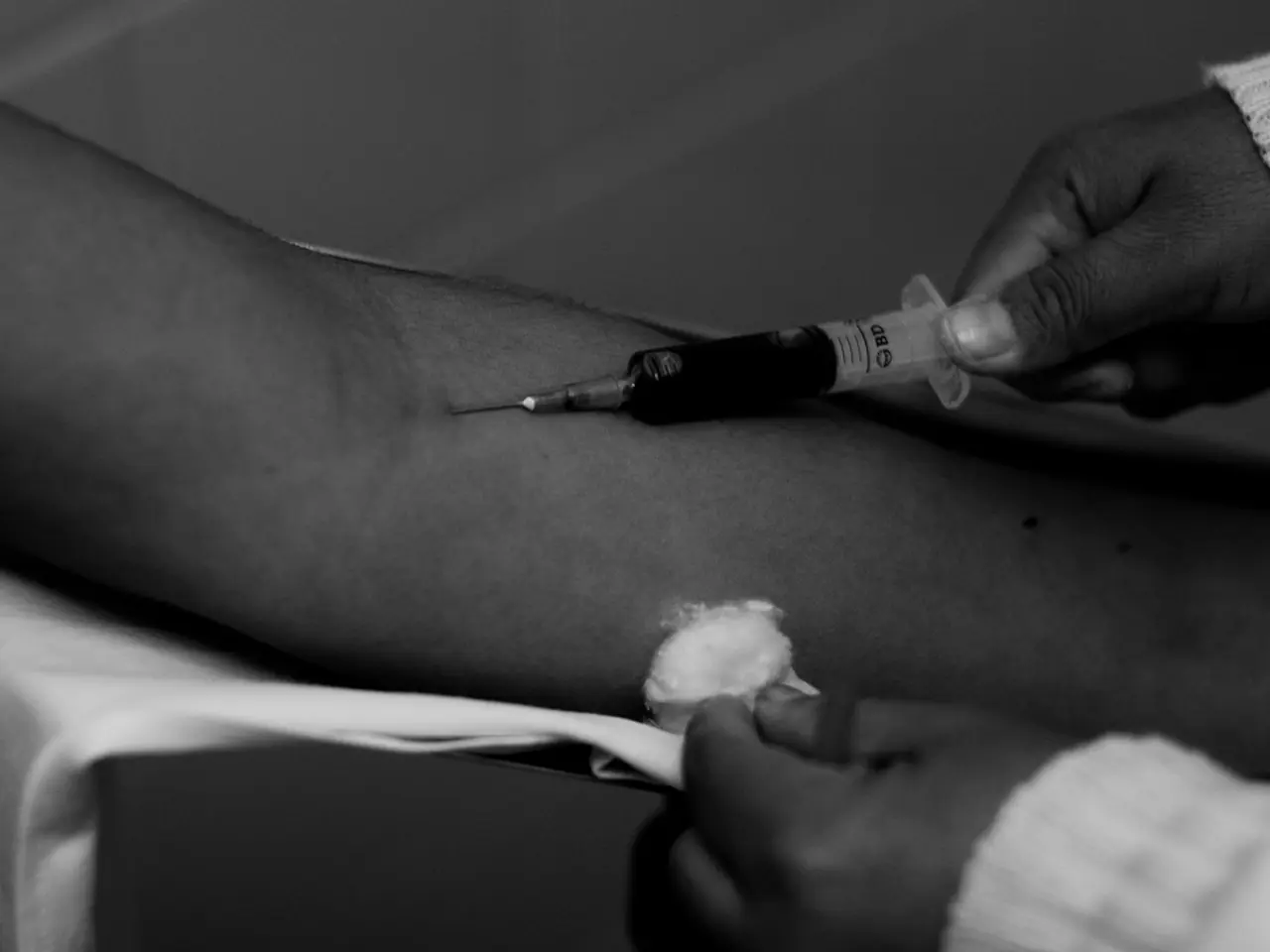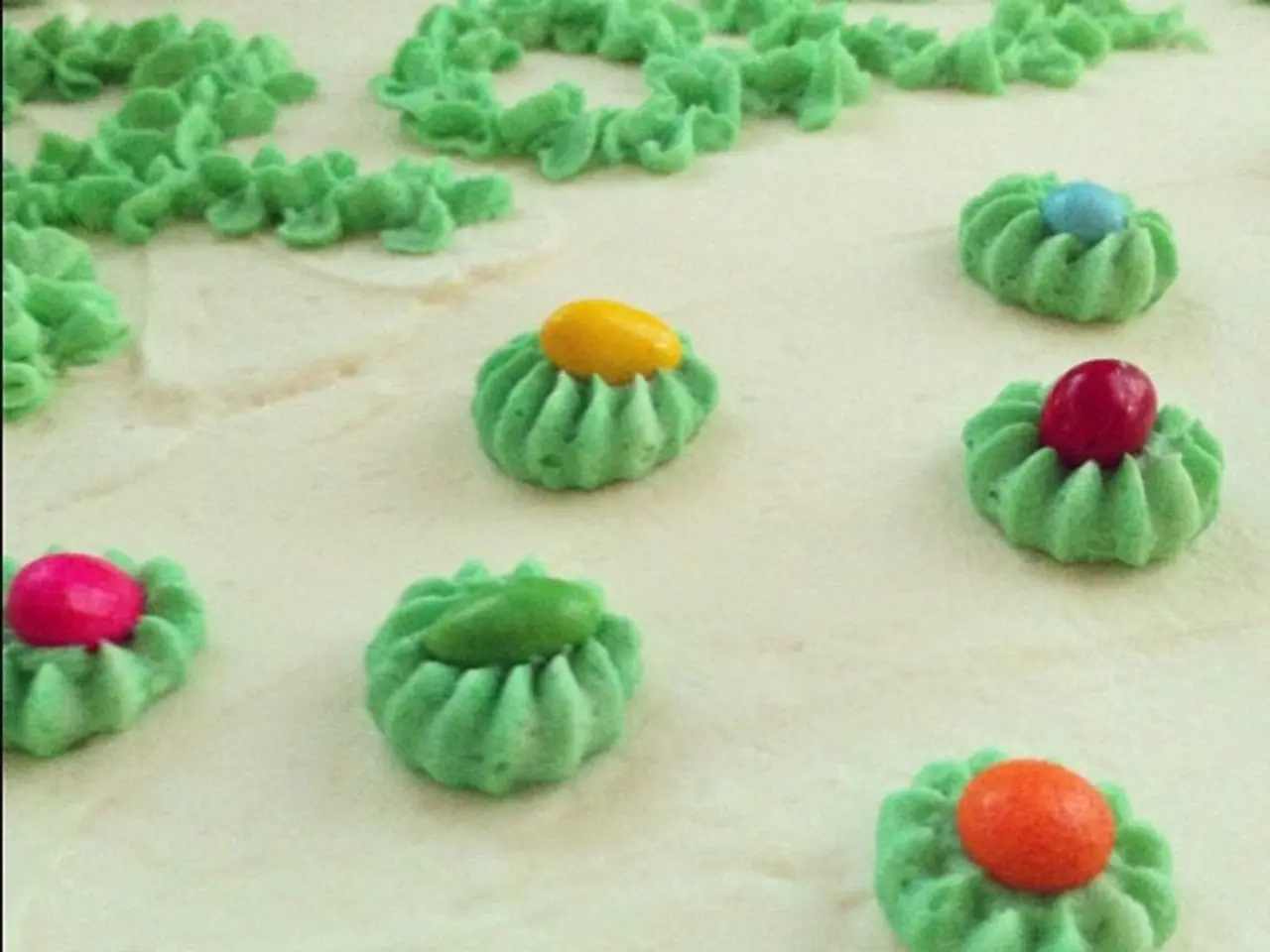Scar Treatment with Essential Oils: Top Picks and Research Support
In the realm of alternative medicine, essential oils derived from plants like Helichrysum, lavender, geranium, chamomile, and tea tree oil have been suggested as potential aids for scar treatment and wound healing. These oils are known for their anti-inflammatory and antimicrobial properties, which can contribute to improved skin health and speed up the healing process.
Helichrysum oil, for instance, is reported to promote skin cell regeneration and soothe damaged skin, making it beneficial for conditions like eczema, sores, and inflammation. Lavender oil, with its anti-inflammatory and antimicrobial properties, has been traditionally used for wound healing and reducing scar formation. Geranium oil exhibits antibacterial and antifungal properties, helping minimize bacterial proliferation on wounds and improving skin barrier function.
Chamomile oil, while traditionally used for its anti-inflammatory and soothing effects on the skin, requires more clinical validation to support its use specifically for scar treatment or wound healing. Tea tree oil, on the other hand, is well-supported by research for its antimicrobial activity, particularly against bacteria involved in skin infections.
However, it's important to note that the scientific evidence supporting these oils for scar treatment and wound healing is varied, with some promising findings but generally limited by the need for more rigorous clinical trials. One study on rosehip seed oil, not an essential oil but often used alongside them, demonstrated measurable clinical improvements in erythema resolution and scar discoloration, revealing bioactive compounds that influence immune cell behavior during healing.
When using essential oils for wound healing and scar reduction, it's crucial to dilute them in a carrier oil such as coconut oil, avocado oil, almond oil, or sesame oil. Users should be cautious and consider evidence-based products and dermatological advice. Before using the diluted essential oil mixture, test it on a small patch of unbroken skin and leave it on for 24 hours to check for irritation.
In conclusion, these essential oils show potential for assisting in scar treatment and wound healing primarily via anti-inflammatory, antimicrobial, and skin-regenerating effects. However, high-quality clinical trials demonstrating efficacy and safety specifically for scars and wound healing are still limited. Combining these oils with clinically-validated carrier oils like rosehip seed oil may enhance outcomes, but users should exercise caution and seek professional advice.
As always, it's essential to remember that while essential oils can be beneficial, they should not replace conventional medical treatments for wounds or scars. If you have a wound or scar that requires attention, consult a healthcare professional for proper guidance.
- In the realm of health-and-wellness, aromatherapy using essential oils like helichrysum, lavender, geranium, chamomile, and tea tree oil can potentially aid in scar treatment and wound healing due to their skin-regenerating, anti-inflammatory, and antimicrobial properties.
- To prevent accidental skin irritations, it's advisable to dilute essential oils with carrier oils such as coconut oil, avocado oil, almond oil, or sesame oil before application, and test them on a small patch of unbroken skin before broader use.
- While essential oils like lavender, geranium, and tea tree oil show promising potential for scar treatment and wound healing based on current scientific understanding, further high-quality clinical trials are required to establish their efficacy and safety specifically for these applications, and they should not replace conventional medical treatments.




